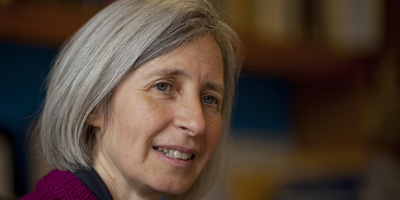Champion of human rights – Prof Martha Minow – to present the Third Annual Reconciliation Lecture
|

|
Prof Martha Minow
"Forgiveness, Law and Justice"
Photo: Supplied |
Prof Martha Minow, Dean of Harvard University’s Law School, will be delivering the highly-anticipated Third Annual Reconciliation Lecture on Monday 24 February 2014. Her lecture entitled “Forgiveness, Law and Justice” promises to evoke healthy debate and honest introspection.
In an interview, Pres Barack Obama has been quoted to say that, as a teacher at Harvard Law School, Martha Minow changed his life. He cited her as being instrumental in his decision to pursue community service instead of commercial law.
Prof Minow – a sheer force of nature – has established herself globally as an advocate of human rights and protector of minorities. The effects of her work are rippling across continents. Her passion for the law has resulted in legislative initiatives that opened access to curricular materials for individuals with disabilities in the United States. She serves as Vice-Chair for an organisation providing assistance to low-income Americans. In addition, Prof Minow has also helped launch a programme called Imagine Co-existence for the UNHigh Commissioner for Refugees. The aim of the programme is to promote peaceful development in post-conflict societies.
The Annual Reconciliation Lecture is organised from the office of Prof Pumla Gobodo-Madikizela. This yearly event was established by Prof Jonathan Jansen, Vice-Chancellor and Rector of the UFS. The main objective is to bring scholars to our university whose leadership and vision for social change and conflict transformation is reflected in their interaction within the academe and their teaching. This initiative supports the university’s drive to achieving excellence not only in the field of academics, but in human reconciliation as well.
The details of the event:
Date: Monday 24 February 2014
Time: 17:30 (please be seated by 17:15)
Venue: Centenary Complex, Reitz Hall, BloemfonteinCampus
The public is welcome to attend.
If you would like to attend the lecture, please confirm with Jo-Anne Naidoo at NaidooJA@ufs.ac.za
The lecture will be streamed live on:http://www.ufs.ac.za/ufslivestreaming/